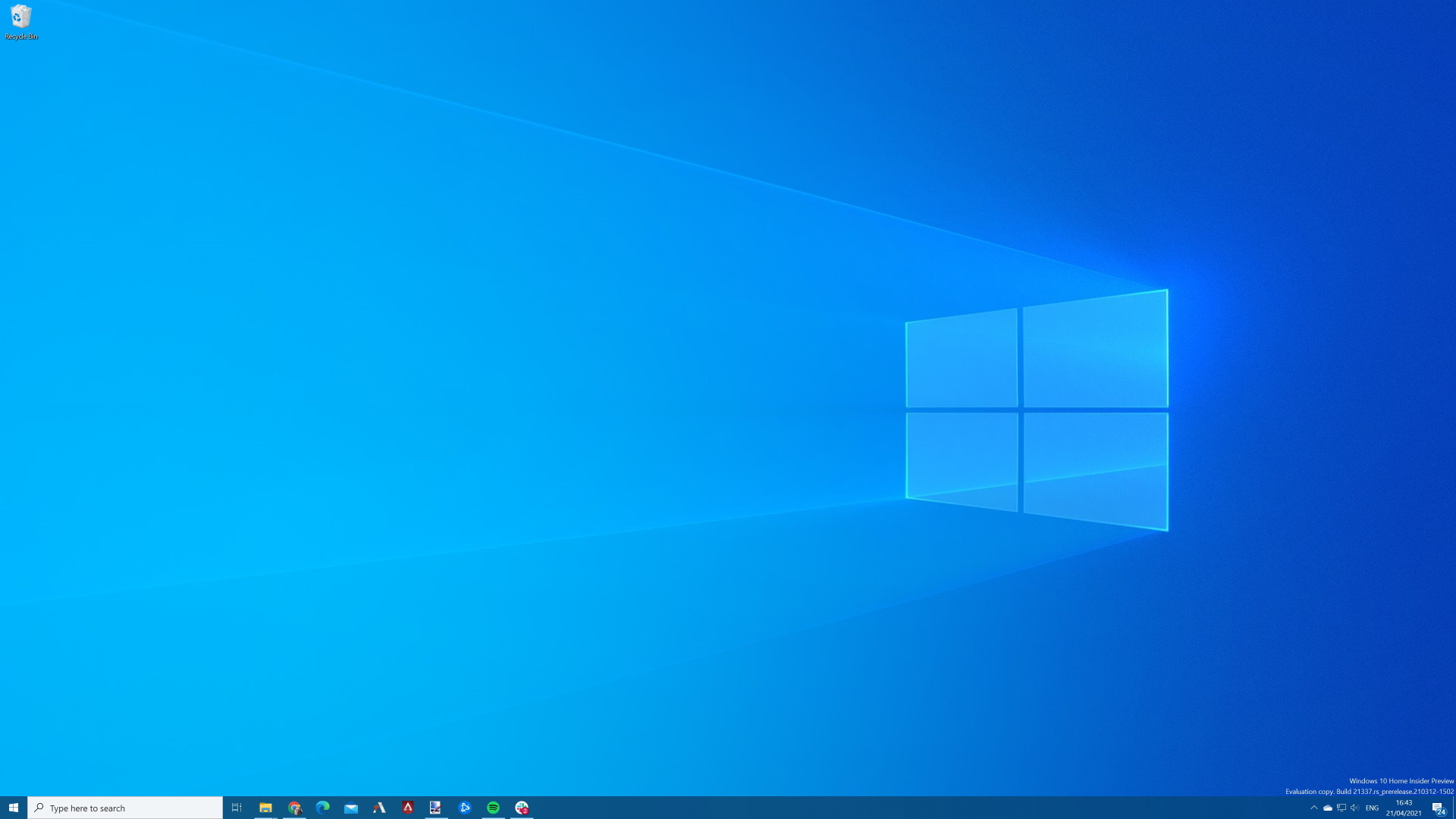Microsoft vows to 'keep supporting' 1.3 billion Windows 10 users
A new feature update for Windows 10 is on the horizon as Windows 11 looms.

Microsoft is excited to release Windows 11 in the coming months, but it has not completely turned its back on Windows 10. In a recent blog post, Microsoft announced another feature update for Windows 10, and assured us it is still "focused on supporting the more than 1.3 billion monthly active devices" currently running the OS.
It's inevitable that a sizable chunk of those devices will migrate to Windows 11 when the OS becomes available, though for various reasons, not all of them will. Some current Windows 10 devices will never see an upgrade to Windows 11 because of the hardware requirements (especially if Microsoft holds firm on the necessity for TPM 2.0), while others may be held back for different reasons.
We saw this when Windows 10 came out, with a large number of people clinging to Windows 7. It's just the way it goes—it took longer than Microsoft initially anticipated to reach 1 billion Windows 10 devices.
Those who plan on sticking with Windows 10 will be happy to know it will not be an afterthought, at least not initially. That is, if taking Microsoft at its word and putting stock into the 21H2 update that is coming out.
"Windows continues to play an important role in people’s lives as they continue to work, learn and have fun in hybrid and remote environments. Our goal is to provide new features and functionality via a fast and reliable update experience to help keep people and organizations protected and productive. Version 21H2 will continue the recent feature update trend of being delivered in an optimized way using servicing technology," Microsoft said.
Outside of what it represents (continued support), the 21H2 update is not terribly exciting. Microsoft outlined three main goals it hopes to achieve with the upcoming update that boil down to better Wi-Fi security, easier deployment of Windows Hello on business machines, and GPU compute support in the Windows Subsystem for Linux (WSL) and Azure IoT Edge for Linux on Windows (EFLOW).
"As this Windows 10 release is targeted for the second half of 2021, Home and Pro editions of version 21H2 will receive 18 months of servicing, and Enterprise and Education editions will have 30 months of servicing. In addition, we will also launch the next version of the Windows 10 Long-Term Servicing Channel (LTSC) based on version 21H2 at the same time, and it will have five years of servicing as announced in February," Microsoft added.
The biggest gaming news, reviews and hardware deals
Keep up to date with the most important stories and the best deals, as picked by the PC Gamer team.
The Windows 10 version 21H2 update is currently being tested to Windows Insiders in the Release Preview channel. In a separate blog post, Microsoft outlined various fixes the preview build brings to the table, including one for an issue that is preventing gaming services from opening certain games for desktop users.
You still have plenty of time to decide if you want to stick with Windows 10 or make the leap to Windows 11 when it comes out. The current plan is to release Windows 11 sometime this year (possibly at the end of October or in November), with updates to existing Windows 10 users arriving early next year.

Best CPU for gaming: the top chips from Intel and AMD
Best graphics card: your perfect pixel-pusher awaits
Best SSD for gaming: get into the game ahead of the rest
If you do decide to upgrade, you will have a little bit of time to test out the new waters before committing—for the first 10 days, there will be an option to roll back to Windows 10 will all your data and programs intact. After that, you would be looking at backing up your data and performing a clean install of Windows 10, if you want to return to it.
That said, Microsoft promises that Windows 11 will "deliver the best PC gaming experiences yet." What that entails remains to be seen. For example, Microsoft originally announced that DirectStorage would be an exclusive feature for Windows 11, but we now know it will be enabled in Windows 10 as well. That's great news for Windows 10 users—DirectStorage is intended to take advantage of the latent power of NVMe SSDs in games, which could facilitate faster load times and more expansive environments.
Time will tell how it all comes together. The big takeaway, however, is that Windows 10 will remain relevant for the at least the next few years.
Paul has been playing PC games and raking his knuckles on computer hardware since the Commodore 64. He does not have any tattoos, but thinks it would be cool to get one that reads LOAD"*",8,1. In his off time, he rides motorcycles and wrestles alligators (only one of those is true).


